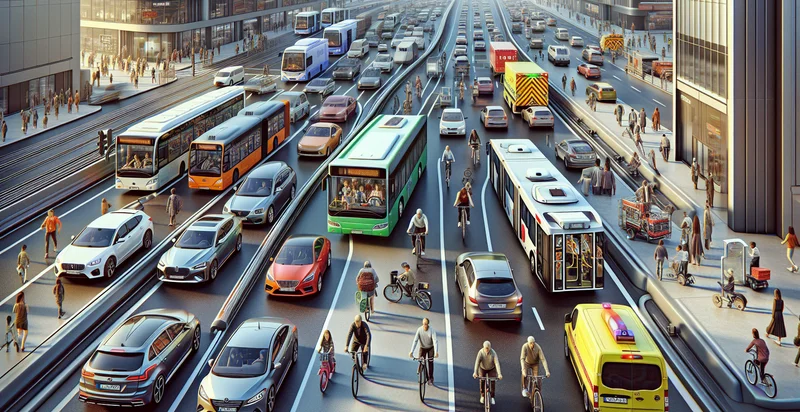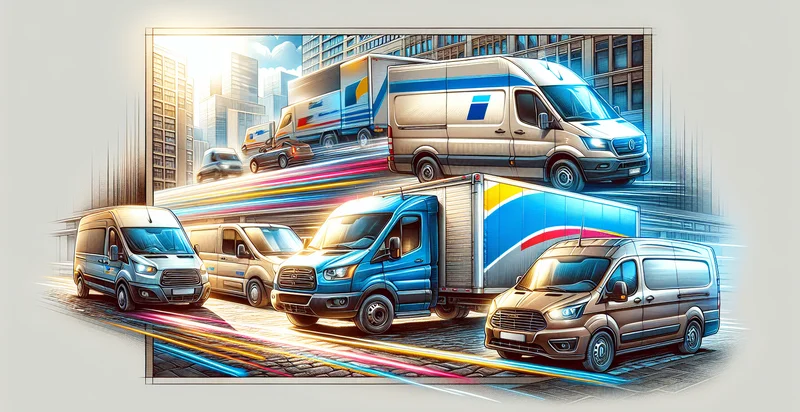Identify vehicle usage type
using AI
Below is a free classifier to identify vehicle usage type. Just upload your image, and our AI will predict what type of vehicle is being used - in just seconds.


Contact us for API access
Or, use Nyckel to build highly-accurate custom classifiers in just minutes. No PhD required.
Get started
import nyckel
credentials = nyckel.Credentials("YOUR_CLIENT_ID", "YOUR_CLIENT_SECRET")
nyckel.invoke("vehicle-usage-type", "your_image_url", credentials)
fetch('https://www.nyckel.com/v1/functions/vehicle-usage-type/invoke', {
method: 'POST',
headers: {
'Authorization': 'Bearer ' + 'YOUR_BEARER_TOKEN',
'Content-Type': 'application/json',
},
body: JSON.stringify(
{"data": "your_image_url"}
)
})
.then(response => response.json())
.then(data => console.log(data));
curl -X POST \
-H "Content-Type: application/json" \
-H "Authorization: Bearer YOUR_BEARER_TOKEN" \
-d '{"data": "your_image_url"}' \
https://www.nyckel.com/v1/functions/vehicle-usage-type/invoke
How this classifier works
To start, upload your image. Our AI tool will then predict what type of vehicle is being used.
This pretrained image model uses a Nyckel-created dataset and has 19 labels, including Agricultural, Car Rental, Commercial, Construction, Corporate, Delivery, Educational, Emergency Services, Fleet and Government.
We'll also show a confidence score (the higher the number, the more confident the AI model is around what type of vehicle is being used).
Whether you're just curious or building vehicle usage type detection into your application, we hope our classifier proves helpful.
Related Classifiers
Need to identify vehicle usage type at scale?
Get API or Zapier access to this classifier for free. It's perfect for:
- Fleet Management Optimization: This function can be utilized by fleet management companies to categorize vehicles based on their usage type, such as delivery, transportation, or service vehicles. By understanding the vehicle usage patterns, these companies can optimize route planning and reduce operational costs while improving service efficiency.
- Insurance Risk Assessment: Insurance companies can leverage the vehicle usage type identifier to evaluate risk more accurately during underwriting processes. By classifying vehicles based on their usage, insurers can offer tailored premiums that reflect the actual risk associated with different vehicle types.
- Urban Planning and Traffic Management: City planners can use this classification function to analyze vehicle types traveling through urban areas. By understanding the composition of vehicles and their usage patterns, urban planners can improve infrastructure, enhance public transport options, and implement more effective traffic management strategies.
- Environmental Impact Analysis: Environmental agencies can employ this function to assess the environmental impact of different vehicle usage types within specified regions. By distinguishing between commercial, passenger, and heavy-duty vehicles, agencies can develop targeted policies for emissions reduction and promote sustainable transport solutions.
- Marketing and Target Advertising: Automotive companies can use the vehicle usage type identifier to tailor marketing strategies and advertisements more effectively. By understanding how different vehicles are being utilized, companies can develop targeted campaigns that resonate with specific consumer needs and preferences.
- Smart City Initiatives: Cities employing smart technologies can integrate this classifier into their traffic surveillance systems. With the ability to identify vehicle usage types in real-time, city officials can make data-driven decisions to enhance public safety, optimize traffic flow, and improve overall urban mobility.
- Vehicle Maintenance Scheduling: Fleet operators can implement this function to predict maintenance needs based on vehicle usage patterns. By identifying the type of usage—such as heavy-duty or light-duty—operators can proactively schedule maintenance, extending the lifespan of their vehicles and minimizing downtime.


